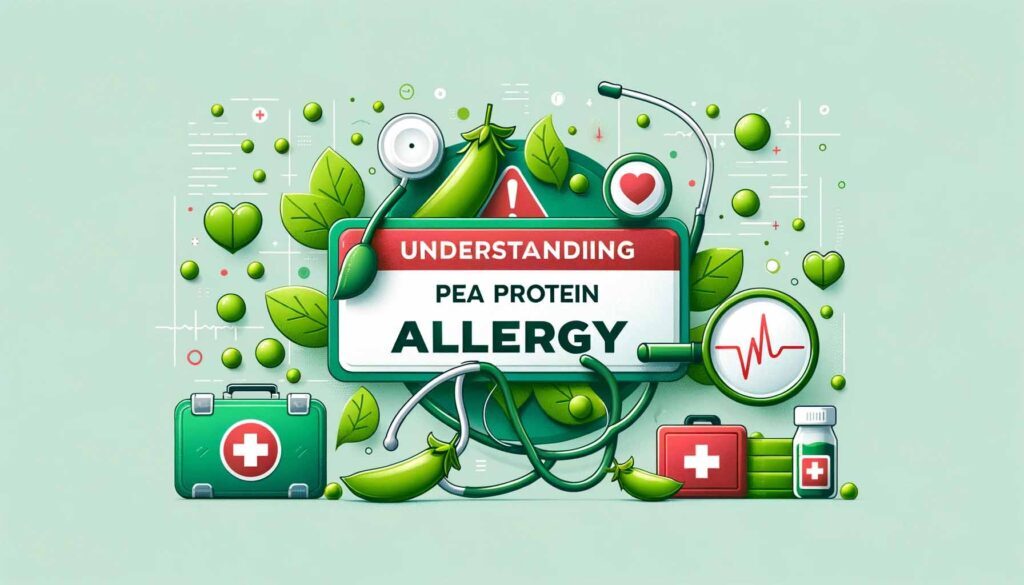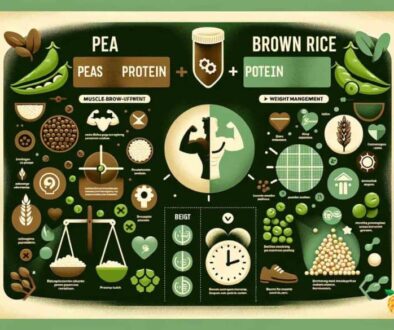Understanding Pea Protein Allergy: What You Need to Know
Explore pea protein allergy, its symptoms, management, and discover ETprotein’s allergen-free pea protein as a safe dietary choice.
Introduction: As the world leans towards plant-based diets, pea protein has become a staple in many kitchens and supplements. However, with its growing popularity comes the need to understand pea protein allergy – a concern for a small but significant portion of the population. This article delves into what pea protein allergy is, its symptoms, diagnosis, and management, offering comprehensive insights for consumers.
1. What is Pea Protein?
Pea protein is derived from yellow and green peas and is celebrated for its high protein content and suitability for vegan and vegetarian diets. It’s found in a variety of products, from protein shakes and bars to meat substitutes and dairy-free products. Its popularity stems from being a sustainable, high-quality protein source.
2. The Emergence of Pea Protein Allergy:
As pea protein’s usage in food products has increased, so have reports of allergies to this ingredient. A food allergy occurs when the body’s immune system reacts unusually to specific foods, and plant-based proteins are no exception. Despite being less common than other allergies, pea protein allergy is an emerging concern.
3. Symptoms of Pea Protein Allergy:
Symptoms can range from mild to severe and include itching, skin rashes, hives, gastrointestinal discomfort, respiratory problems, and in rare cases, anaphylaxis. Recognizing these symptoms is crucial for timely and effective treatment.
4. Diagnosing Pea Protein Allergy:
Diagnosis typically involves skin prick tests or specific IgE blood tests. Healthcare professionals may also recommend an elimination diet followed by a food challenge under medical supervision to confirm the allergy.
5. Managing a Pea Protein Allergy:
Management involves avoiding foods containing pea protein and closely reading labels, as pea protein can be present in various products. For those allergic, alternative protein sources like soy, rice, or almond protein might be recommended.
6. Myths vs. Facts About Pea Protein Allergy:
It’s a myth that plant-based proteins can’t cause allergies, and another misconception is that pea protein allergy is extremely common. In reality, while it is possible, it’s less prevalent compared to other food allergies.
7. Pea Protein Allergy in Children and Adults:
Both children and adults can develop a pea protein allergy. Parents should monitor their children’s reactions to new foods and consult pediatricians for advice on managing allergies.
8. When to Seek Medical Attention:
Immediate medical attention is necessary if severe allergic reactions like difficulty breathing, swelling of the throat, or anaphylaxis occur. Those with known severe allergies should always carry an epinephrine auto-injector.
Conclusion:
Awareness and understanding of pea protein allergy are essential, especially with the rising use of pea protein in various diets. While pea protein is a beneficial and nutritious ingredient, being mindful of potential allergies and knowing how to manage them is key for safe consumption.
ETprotein’s Allergen-Free Pea Protein – A Safe Choice:
At ETprotein, we understand the importance of allergen-free dietary choices. Our pea protein is meticulously processed to ensure it is free from common allergens, making it a safe option for most individuals, including those with sensitivities. We recommend ETprotein’s pea protein as a nutritious, allergen-free alternative, ideal for enhancing your daily protein intake without the worry of allergies.












